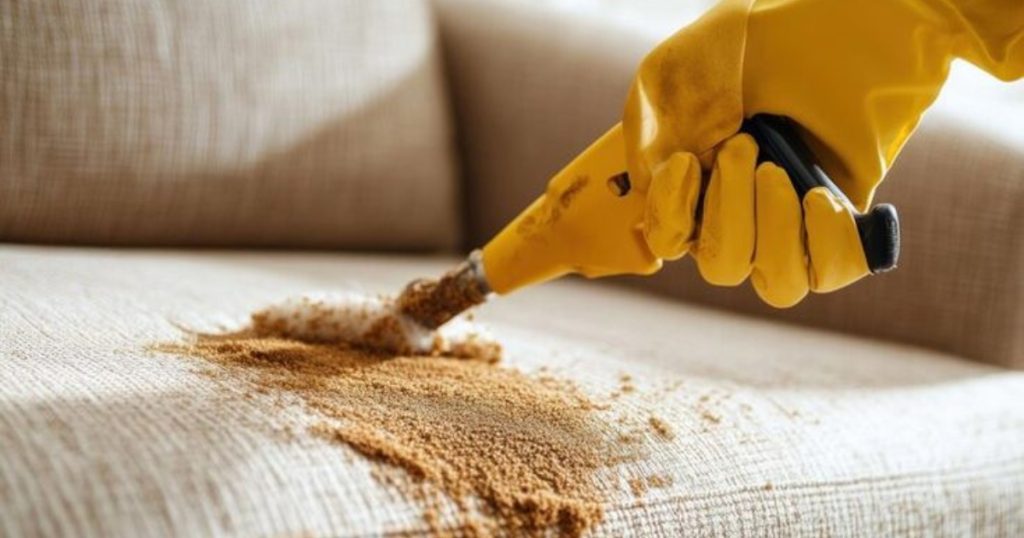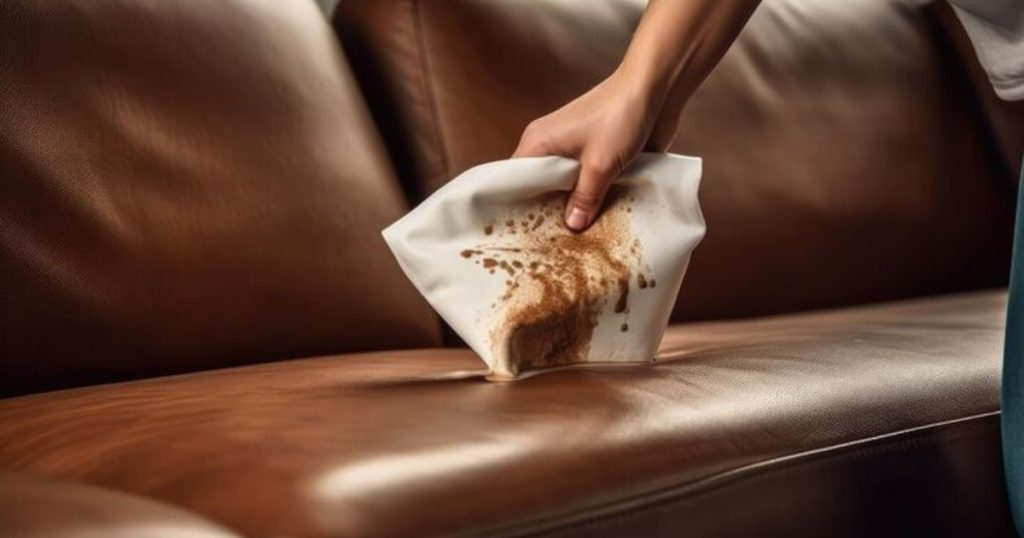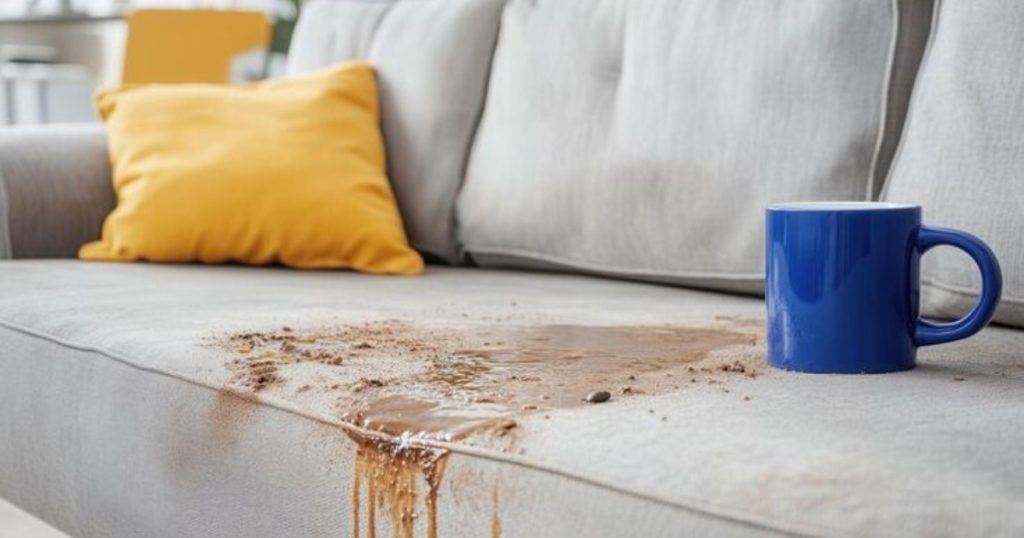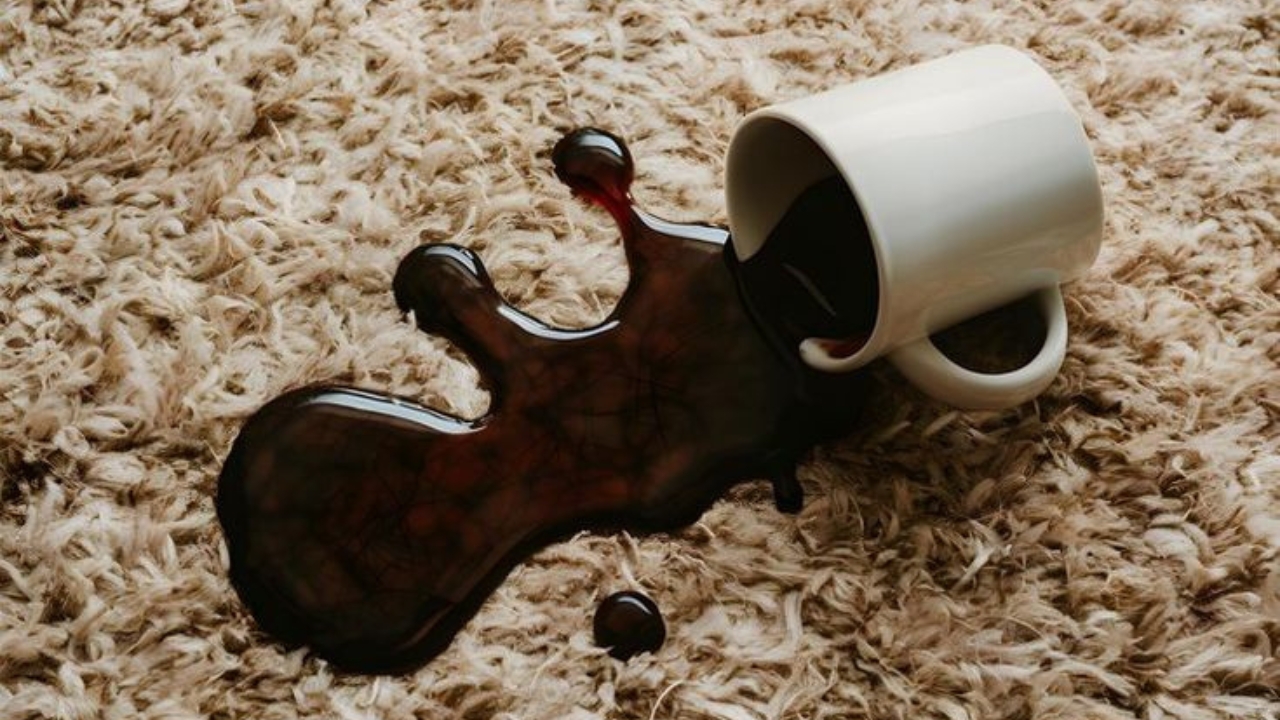Please find how to get chocolate stains out of furniture with our in-depth guide, which includes preventative tips and how-tos for fabric, leather, and wood. This ultimate guide to chocolate stain removal offers home remedies, professional advice, prevention tips, and answers to all your chocolate stain questions.
Thank you for reading this post, don't forget to subscribe!Chocolate: It’s a favorite snack for young and old, but it can turn into a horror show when it lands on your furniture. Whether it’s a handprint from a child’s gooey hand, the remnants of a late-night treat that fell onto a couch or table, or a candy that has fallen on the floor, chocolate stains are a recipe for causing instantaneous panic and stress. Chocolate stains might be particularly obdurate simply because they’re made up of fats and sugars, and sometimes dairy as well, says Brian Free, general manager for the North American division of Jeeves New York, a chain of dry cleaners.
But fear not — this helpful guide is your end-all-beat-all resource for learning to remove chocolate stains from all your furniture, including fabric (like microfiber and velvet), leather, and wood. From quick emergency fixes to deep clean solutions, natural home remedies, and professional advice, you’ll find everything you need here to get your favorite pieces looking their best again.
Why Are Chocolate Stains So Hard to Get Out?
Chocolate is a yummy blend of cocoa solids, fats (cocoa butter), sugar, and sometimes milk. That unique combination is why chocolate melts in your mouth, not in your hand — and on your furniture, too, unfortunately.
- Fat Level: The fat within chocolate is readily absorbed through the fabric and other surfaces with many air pockets. Hence, it immediately creates a greasy, water-resistant, and water-repelling stain.
- Sugar: When sugar gets wet, it becomes sticky and can adhere to fibers, form ing a complex challenge.
- Dairy (in milk chocolate): Protein-based stains from milk can also be more difficult to remove, as protein doesn’t react the way fat or sugar does.
- Color: Chocolate’s dark colorants can make them discolored, especially on light furniture.
Knowing these factors is essential, as effective stain removal frequently involves dealing with all of them.

Quick Fixes: Chocolate Spills – What to Do Immediately
As soon as chocolate hits your furniture, you need to act. Here’s what you should do right now:
Scrape Off Excess Chocolate
Using a dull knife, a small spoon, or even an old credit card, gently scrape off as much chocolate as you can from the surface. Avoid pressing the chocolate deeper into the cloth or fabric.
Tip:
If the chocolate has melted and turned sticky, you can “harden” it by putting a bag of ice cubes or a frozen pack over the spot for 5-10 minutes. This makes it easier to lift off without making a mess.
Blot, Don’t Rub
Blot the stain with a clean, dry cloth or paper towel. Then, just dab it into the chocolate and oil. 3 Steer clear of rubbing, as all that does is spread and push the stain into the surface.
Avoid Heat
Hot water, a hair dryer, or iron should never be used on a stain. Chocolate stains can get set with heat, making them almost (if not fully) impossible to remove.
How to Get Chocolate Stains Out of Fabric Couch
Chocolate stains are particularly susceptible to fabric-covered furniture. Here is a process to try that works for most fabrics, but always test the solution in a hidden spot:
Step 1: Solidify and Extract the Chocolate
If you’ve just had a chocolate spill that has not dried, you can follow the previous section to harden it with ice and scrape off the excess.
Step 2: Make the Cleaning Recipe
Combine a tablespoon of mild dish soap (such as Dawn or Fairy) with two cups of cold water. For extra cleaning power, add a tablespoon of white vinegar.
Step 3: Blot the Stain
Submerge your white cloth into the soapy water.
Dab at the soiled area, starting from the outside and working in to ward off spreading.
When the chocolate lifts onto the cloth, switch to the clean section.
Never soak the material — give it enough solution to dampen it.
Step 4: Rinse
Repeat the process with another clean piece of cloth soaked with cold water, blotting the area to wash away the soap.
Step 5: Dry the Area
Pat dry with a dry towel and let the area air dry. Try to keep seasonal sites free of heat and direct sunlight, which can cause water rings or fading.
Step 6: Repeat if Needed
A few chocolate stains, such as dark chocolate or those that have been sitting in for a bit, may need multiple treatments. If it doesn’t come loose, just keep trying; eventually, it will release.

Helpful Advice: Specialty/Delicate Fabrics
Silk or Velvet: Lightly blot with cold water and gentle soap. Avoid scrubbing. If the stain does not go away, contact an expert.
Microfiber: Never use strong cleaners; use only mild soap and water, as anything harsh will ruin the material.
Wool: Wool-safe detergent and cold water. Do not use bleach or hot water.
What If the spill is old or Set?
For dried-up or old chocolate-stain messes:
- Scrape off any hardened chocolate gently.
- Blot with a solution of one part hydrogen peroxide (available at drugstores) to two parts water. Allow it to stand for 10 minutes, then blot.
- Rinse and dry as above.
Caution:
Hydrogen peroxide has the potential to bleach colored fabrics, so always test it on an inconspicuous spot.
How to Remove Chocolate From Leather Furniture
Leather is not as absorbent as fabric, but if left untreated, chocolate can still leave greasy or discolored marks.
How to Fix Step 1: Take Off the Excess Chocolate
Carefully scrape off as much chocolate as you can with a plastic spatula, spoon , or credit card. Do not use sharp objects.
Step 2: Clean the Leather
Stir a small amount of liquid dish soap into a cup of lukewarm water.
Dip a soft, clean cloth into the solution (never drown the leather).
Rinse your cloth and wipe away any soapy film with a towel before drying the area.
Step 3: Condition the Leather
Make sure to condition the leather after you have cleaned it to keep it soft and prevent drying out or cracking.
For Persistent Stains
- If so, try a commercial leather cleaner by following package instructions.
- Do not use alcohol, acetone, or abrasive cleaners, as they may cause damage to the leather finish.
For Suede or Nubuck
- Gently brush off any dried chocolate with a suede brush.
- If needed, a minimal amount of white vinegar on a cloth can help, but use it sparingly and test first.
- For tough marks, you can find suede/nubuck cleaner.
How To: Remove Chocolate Stains from Wood Furniture
Wood Chocolate stains on wood aren’t quite as common, though children make them just the same, especially if chocolate is dropped onto a wooden table or chair.
Step 1: Remove the Chocolate
Lightly scrape any excess chocolate out with a plastic scraper or credit card. Do not use metal utensils that may scratch the finish.
Step 2: Clean with Lathered Soap
- Combine a teaspoon of dish soap with two cups of warm water.
- Soak a clean cloth, then dab at the stained area.
- Rub along the grain; otherwise, you’ll end up with streaks.
Step 3: Rinse and Dry
- Wet a second towel with clean water and wipe the spot to eliminate any soapy residue.
- Dry thoroughly with a towel.
Step 4: Polish
After this is dried, buff the spot with a good wood polish to restore the gloss and preserve the polished surface.
For Stubborn Stains
If a dark spot or sticky residue persists, use a mixture of white vinegar and water in equal parts. Test in an inconspicuous area first.
Always check with a specialist before using cleaning agents if using on unsealed or antique wood.
Homemade Chocolate Stain Removers
If you would rather not use a commercial cleaner, there are some great natural alternatives:
Baking Soda Paste
- Shake some baking soda and add a few drops of water to form a thick paste.
- Use on the stain, wait 5–10 minutes, and then blot away with a damp cloth.
Vinegar Solution
- White vinegar and water are equal amounts.
- Apply to the stain, blot, and rinse with clean water.
Cornstarch or Talcum Powder
- Apply some cornstarch or talcum powder on the stained area for oil-stained chocolate.
- Allow it to sit for several hours to absorb the oil, then vacuum or brush it off.
Lemon Juice
- This stubborn stain can be warded with lemon juice for white and colorfast fabrics.
- Blot with a cloth and rinse with cold water.
Always try natural treatments on an inconspicuous area first—some materials and finishes may respond in unexpected ways.
All of us get too busy sometimes.
Occasionally, no matter what you do, a chocolate stain won’t come out — or the furniture is too precious (or fragile) to risk claims of the D.I.Y. variety. Here’s when you need a pro:
- Antique or heirloom furniture: A pro can work with fragile, rare, or valuable pieces.
- Specialty fabrics and leathers: Treatments for suede, silk, velvet, and some leathers may need special attention.
- Big or deeply set stains: If a stain is widespread or you have tried to remove it without success, you may need specialized equipment and expertise.
- Stubborn smells or sticky residue: Let pros remove any trace of chocolate and stench.
Your local professional upholstery and leather cleaning will use products and methods that cater to your fabric’s needs, such as steam cleaning or dry cleaning , without leaving your furniture soaked.
Prevention Tips: Keeping Furniture Chocolate-Free
Smearing can occur, but there are several tactics to minimize the risk of chocolate-to-clothes staining:
- Use Washable Slipcovers or Throws.
Use washable slipcovers to cover sofas, chairs, and cushions, especially if you have children or like to snack.
- Set Eating Rules
Disincentivize family, friends, and guests to eat chocolate and other messy foods while sitting on the sofa.
- Regular Maintenance
Vacuum and wash your furniture to avoid dirt and potential stains.
- Add Fabric or Leather Protectors
Commercial sprays can leave a barrier that makes it easier to clean up spills before they have a chance to set.
- Act Quickly
The sooner you can attack a spill, the less likely it will cause a permanent strain.

Frequently Asked Questions
Can I use bleach to get out chocolate stains on furniture?
No, bleach is not a recommended solution for upholstery fabrics or leather. It will discolor and weaken the fibers, and for leather, it’s unfixable. Always use mild cleaning products, testing them out first.
Can you steam-clean chocolate stains?
Steam cleaners can be effective on some fabric upholstery; just check the manufacturer’s care label first. Don’t use steam on leather, suede, or wood because it can warp, crack, or otherwise damage these materials.
If the chocolate stain has dried already, If your chocolate stain has already gone through the drying process, try the following.
Dried chocolate stains can be removed, but it may take several attempts. Rub away as much of the chocolate as possible, then apply a soap and water solution (or, for colorfast items, try hydrogen peroxide) to the area. Be patient and persistent.
Does Vinegar get chocolate out?
White vinegar breaks down sugar and deodorizes that zone, particularly when diluted with water and mild soap . But vinegar must be used cautiously — always spot-test first — because it can strip some dyes and finishes.
How do I keep chocolate stains from the setting?
Soak up spills immediately, as heat can damage them, and use a mild detergent. Periodic use of fabric or leather protectants can also make cleaning in the future easier and help prevent stains from becoming deep-seated.
Conclusion
Chocolate on furniture is a regular household dilemma . Fortunately, with some effort and a little patience, you can get most chocolate stains out of fabric, leather, and wood furniture. Speed is the answer— scrape off the excess chocolate, blot (don’t rub), and apply the appropriate cleaning solution for your type of furniture.
For stubborn or old stains, repeat the process and test cleaners in an out-of-the-way spot. If in doubt or if your furniture is particularly precious or fragile, call in a professional cleaner.
Using the directions and tricks explained in this brief guide, you can indulge in your favorite chocolate good times without worry, knowing that your furniture will continue to look, feel, and smell great for years.
